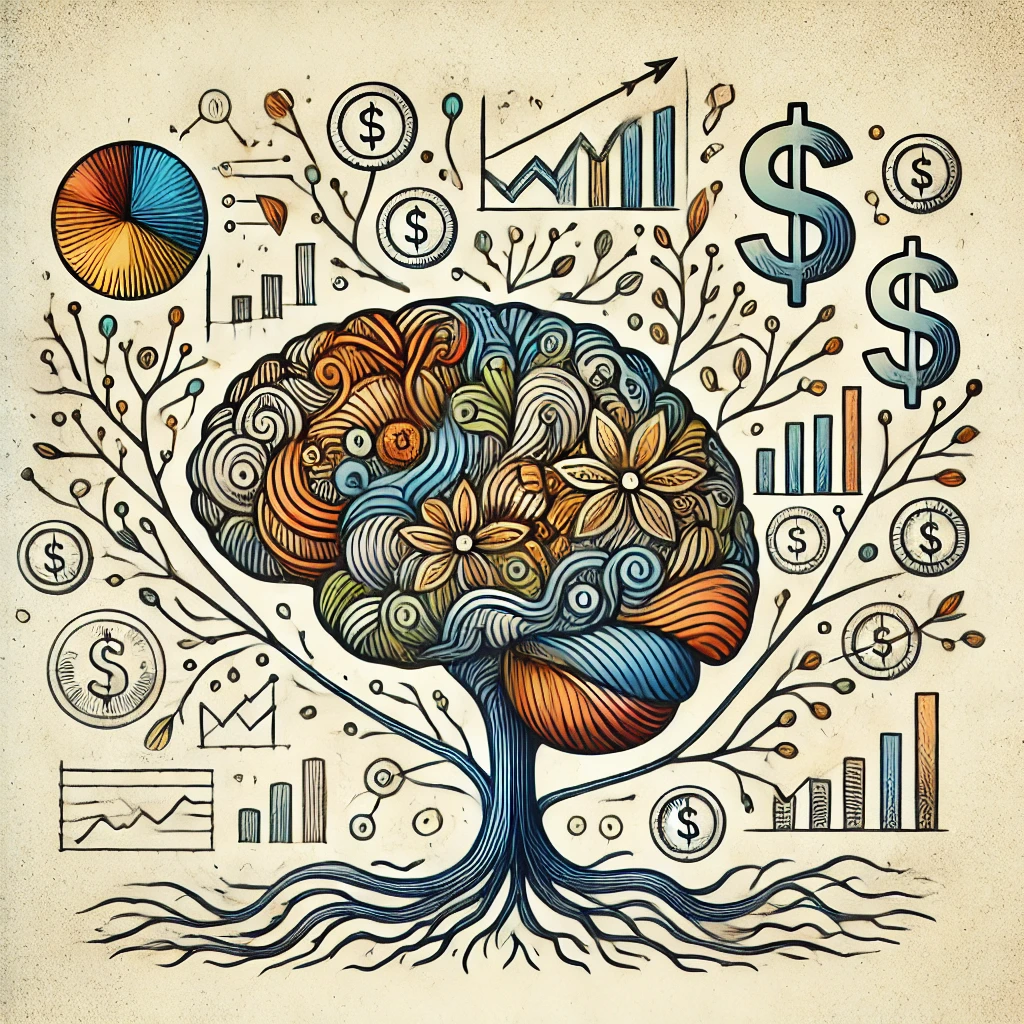Unlocking Investment Success: How Behavioral Economics and Economic Psychology Can Transform Your Trading Decisions
Hello, how are you?
Today, I want to talk with you about two concepts that, although complementary, have some important distinctions: behavioral economics and economic psychology.
If you are a trader or head of a trading desk at an investment fund, understanding these concepts can further refine your decision-making and enhance your market strategies.

Behavioral Economics: Unveiling Mental ShortcutsBehavioral economics emerges from the intersection of psychology and traditional economics, challenging the idea that economic agents are always rational. Think about the last time you decided to invest in a popular stock because everyone was talking about it, or sold hastily due to widespread panic. These are examples of heuristics and cognitive biases that behavioral economics studies.A classic example is the overconfidence bias. Imagine you made several consecutive successful trades and started to feel invincible. This overconfidence can lead to risky and often disastrous decisions. Daniel Kahneman and Amos Tversky, pioneers of behavioral economics, demonstrated that our aversion to loss is significantly greater than the pleasure of gaining, which explains why we often hold on to bad investments, hoping for a miraculous recovery.
Economic Psychology: Exploring Emotional Depths
On the other hand, economic psychology delves into the emotional and cognitive processes influencing financial decisions. Think about the last time you had a tough day and impulsively decided to make a purchase to lift your spirits. Or when anxiety about the economic future led you to reassess your entire investment strategy.Economic psychology investigates how factors like stress, anxiety, and optimism impact your financial choices. Studies show that financial stress can profoundly affect mental health and, consequently, the quality of economic decisions. This field examines how personal psychological aspects, such as emotional formation during childhood, shape our economic behavior.
The Intersection of the Two Fields: The Power of Awareness
Imagine the power of combining these two fields of study. Understanding how our cognitive biases lead us to make hasty decisions and how our deep-seated emotions influence our risk perception can transform your approach to investments.
Questions for Reflection
- Have you ever found yourself making an investment decision driven by excessive optimism or fear of loss?
- How are your past experiences and current emotional state influencing your financial choices?
- What can you do to mitigate the impact of biases and emotions on your trading decisions?
Let's Talk?
I believe these insights can be valuable for you, both personally and professionally. If you want to delve deeper into how behavioral economics and economic psychology can enhance your investment strategies, schedule a session with me. Let's explore together how to apply these ideas in your daily trading activities.I am here to help you make more conscious and informed decisions. After all, understanding the human mind is one of the keys to success in the world of investments.Best regards and successful trading!